What would you rather… An environment in which you feel free to speak your mind and engage in light-hearted banter, even at the risk that the occasional offensive joke is made (offensive, being subjective of course) or, conversely, one in which you feel as though you are ‘treading on eggshells’? I’d take the former. As the great Rowan Atkinson articulated, ‘There should be no subject about which you cannot make jokes… In my view, the right to offend is far more important than any right not to be offended.’
I raise this issue in the context of freedom of speech, noting the recent proclivity for ‘problematic’ comedians to be cancelled and de-platformed, and the discussion around the ‘harm’ that some comedy can cause.
Consider in recent years the removal of certain program’s episodes from respective streaming platforms or broadcasters, including Little Britain, Fawlty Towers, and Summer Heights High. Further, contemplate the recent ‘deplatforming’ campaigns against some comedians, one example being Andrew Lawrence.
Here are four key reasons why we should protect comedy, including that which is deemed by some to be offensive.
Offence is subjective
I reject the notion that comedy can ever be ‘problematic’ and that there are some areas that are too taboo. To put my money where my mouth is, consider this anecdote.
I recently had the great fortune of meeting the hilarious Jimmy Carr. I was in company with an immediate family member, and Jimmy asked if I was shagging them. Did I whip out my phone in disgust and start Tweeting calling on the cancellation of Jimmy Carr? No… I smiled, shook my head, and retorted, ‘Bloody hell Jimmy, we’re from Victoria, not Tasmania mate!’ I also reiterated that it is the Kiwis who enjoy getting into bed with sheep, not the Australians (as I am reliably informed by my English friends that it is the Welsh who enjoy indulging in this strange practice on this side of the world).
The trouble with offence is that it is almost entirely subjective. What offends one person may not offend another (and factors like different personalities, culture, sex, etc., come into play). Were we to attempt to eradicate any comedy which caused offence, we would be left with absolutely no comedy at all.
Attacks on free speech, including in the sphere of comedy, often rest on the notion that words cause ‘harm’. I would retort that more harm would be caused to the wellbeing of society were we to continue down this path of cancellation and ostracising individuals to whom certain people take offence. I note that there is a proclivity for some, especially those on the progressive-left, to perceive some comedy as ‘a form of oppression’ (note the Marxist terminology). To the contrary, comedy can be a powerful tool of empowerment, enabling minority groups to poke fun at those in power.
If I was so inclined, I could easily have taken offence at the above joke that Jimmy Carr told me. I did not, because I am of the view that such utterly socially inappropriate and outrageous comments are at the heart of great comedy. Three of my favourite stand-up comedians, Mark Normand, Ryan Long, and Fin Taylor, are each respectively masterful at making jokes in areas that many consider to be totally off-limits. Similarly, irreverent shows such as South Park, Family Guy, Rick and Morty, Curb Your Enthusiasm, and Peep Show, often provide apt social commentary, in the most offensive way possible. South Park has done this consistently well over a number of years; because they poke fun at literally everyone, they are not being discriminatory to anyone.
While these shows are not for everyone, the beauty is we have the freedom to choose…
Choice
In day-to-day life there is of course no need to be deliberately provocative or antagonistic, good luck to you if you are, but I suspect you might run out of friends rather quickly. The point which I wish to make is that if you find something to be offensive or distasteful, turn the other cheek. It is simply a matter of freedom of association (and indeed, resilience). If you find someone objectionable, don’t hang around them. With respect to comedians which one finds offensive, rather than seeking to ‘de-platform’ them, simply accept that not everyone’s humour is to your taste and move on. This is the beauty of a free society, we have choice, and thank God for diversity of opinion.
The cancellation of comedians cuts against the heart of freedom of speech. If you don’t like it, you don’t have to engage!
Uniting force, not oppressive
Good comedy can and does cut across the political divide. I have friends across the political spectrum, and while we may disagree vehemently on matters of economics or social policy etc., we are united by tolerance and goodwill and most importantly, a robust sense of humour that enables us to constantly ‘take the mickey’ out of one another. We can’t lose this. How beautiful is it to be able to disagree with someone politically, and have a beer at the end of it and still be close mates?
Let’s leave censorship to authoritarian governments, in the West we ought to celebrate diversity of opinion, even opinions which we do not like.
Comedy as a way of dealing with adversity
Finally, on a deeply serious note, there is so much tragedy in life, that humour is one of the most powerful tools that can help us get by in the darkest of days. It is one of the simple pleasures of life to be able to lift a friend’s mood with a joke when they are feeling especially blue.
In a recent interview with Andrew Doyle, John Cleese emphasised the therapeutic virtues of comedy:
‘…people can have a rotten day at the office, come back home and put on an episode of Fawlty Towers, and once it’s finished they can have a nice evening. So perhaps I should call myself a comedy therapist.’
Let’s not take ourselves too seriously, life’s too short and we ought to spend it in good company, with those that can laugh at the world around them and themselves! Our culture will be poorer without the preservation of comedy, even (and especially!), that which offends.
It would be remiss of me not to conclude with the wise words of Monty Python, ‘Life’s a piece of sh*t, when you look at it… (but remember to)… Always look on the bright side of life!’
Mark Burgess is an Australian living in London, and has emphasised that he makes absolutely no apologies to his friends from Tasmania and New Zealand, you cheeky devils you.
Got something to add? Join the discussion and comment below.
Get 10 issues for just $10
Subscribe to The Spectator Australia today for the next 10 magazine issues, plus full online access, for just $10.

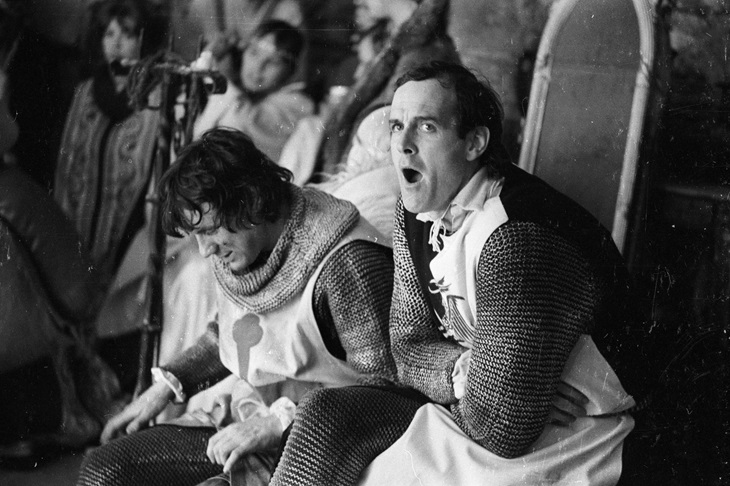
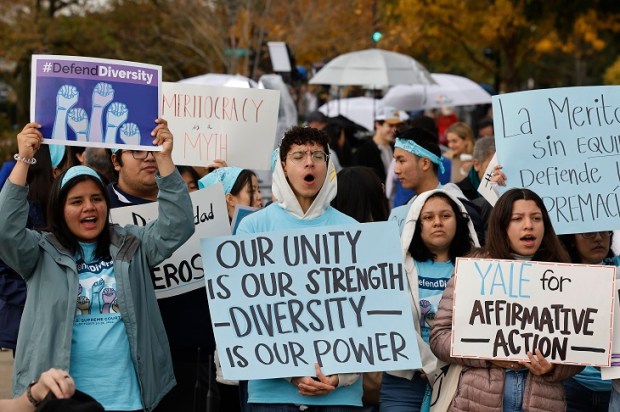
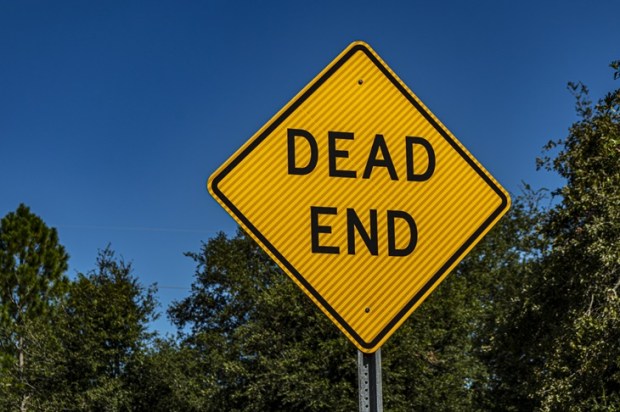
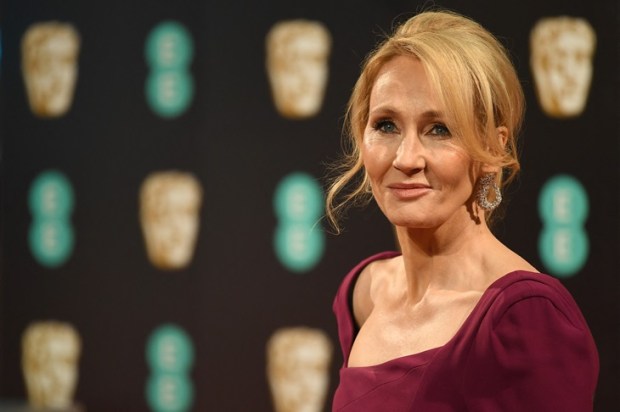
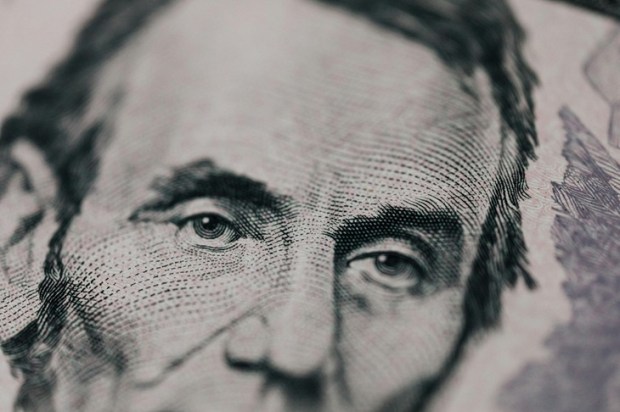




















Comments
Don't miss out
Join the conversation with other Spectator Australia readers. Subscribe to leave a comment.
SUBSCRIBEAlready a subscriber? Log in